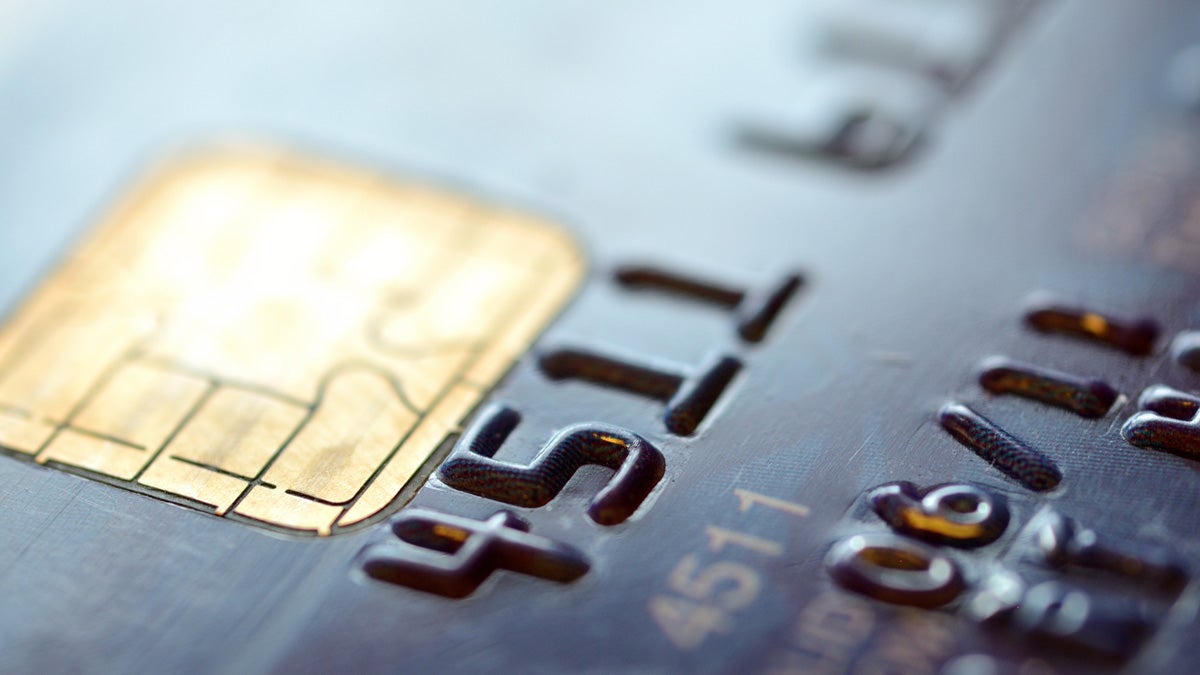N.J. ponders ban on ‘cashless stores’, Amazon objects
Lawmakers concerned that if stores only accept credit and debit cards they would discriminate against poor and elderly customers.
 credit card via ShutterStock) " title="creditcard2" width="1" height="1"/>
credit card via ShutterStock) " title="creditcard2" width="1" height="1"/>
(credit card via ShutterStock)
Not everyone uses plastic cards as if they were cash. Low-income residents and senior citizens are the most likely to be unable or unwilling to charge purchases. But with more shoppers choosing cards over cash, some retailers are beginning to go cashless. Monday, a bill that would force stores to keep accepting money inched closer to the governor’s desk, as Senate action positioned the measure for final passage early in the new year.
The ban on so-called cashless stores embodied in A-591/S-2785 is somewhat controversial, drawing the ire of the retail giant Amazon and New Jersey business groups like the state Food Council, State Chamber of Commerce, and state Retail Merchants Association.
What’s behind this push to go cash-free? Many businesses are finding it more efficient and faster to process card payments. They also say it is safer, reducing the risk of robbery since there is no money for thieves to grab. But business opposition is not uniform. Some small businesses — delis, in particular — frown on customers using anything but cash for small purchases because the business typically has to pay a processing fee of about 2 percent on all card transactions.
Cashless controversy
Consumer advocates argue that businesses who refuse to take cash wind up discriminating against both low-income customers who don’t have either a credit or a debit card and older customers who are more used to paying with cash.

Assemblyman Paul Moriarty (D-Gloucester) explained his reason for sponsoring the bill earlier this year: “Many people do not have access to consumer credit, and any effort by retail establishments to ban the use of cash would be discriminatory towards those people. The U.S. dollar is legal tender and should be accepted at any retail establishment in New Jersey.”
The measure would require virtually all stores in the state to accept cash for purchases made in person. Transactions made online, by mail, or over the phone could still be paid for using a credit or debit card. Earlier this month, the Senate Commerce Committee amended the bill to exempt from the ban municipal parking facilities, lots that accept only mobile payments, and most airport food vendors, provided at least two food sellers in the same terminal take cash.
Last June, the Assembly had passed the bill, without those amendments, by a lopsided 71-4 vote. But both houses need to pass identical versions of legislation before it can be sent to the governor. While that passage had been expected on Monday, the bills were instead amended on the floor of the Senate to exempt car- rental agencies from having to take cash, provided they accept a certified or cashier’s check in addition to credit and debit cards. Both houses could vote on final passage of the measure on returning from their holiday recess early next year.
If Murphy signs the bill banning so-called cashless stores, New Jersey would become only the second state to do so. Massachusetts has banned stores from refusing to accept cash since 1978. Several cities around the country — including New York and Philadelphia — are considering a ban on cashless stores, as well.
Amazon opposes
Amazon’s opposition reportedly delayed the measure’s passage last September when the bill’s Senate sponsor said the company expressed its concerns and Newark was still in the running to be the home to the company’s second corporate headquarters. Known for its online presence, the company has opened a cashless Amazon Books store in Paramus and has plans to open 3,000 brick-and-mortar Amazon Go grocery/convenience stores across the country by 2022. In these stores, shoppers would swipe in using an app, choose the items they wish to buy, put them right in a bag while shopping, and then leave the store without waiting on a checkout line. Technology in the app would record the purchases and charge the shopper’s account.
The cashless store ban would impose steep penalties on retailers that violate it. First and second violations would bring civil penalties of $2,500 and $5,000, respectively. Subsequent violations would be considered unlawful practices under the state consumer fraud act, bringing monetary penalties of up to $20,000. They could also result in the state attorney general issuing a cease-and-desist order and the possibility of punitive damages.
In an opinion piece for NJ Spotlight, Michael Mandel of the Progressive Policy Institute wrote that it would be a mistake for lawmakers to pass the ban on cashless stores.
“The shift to cashless stores is a positive for poor Americans and small retailers, if combined with a concerted effort to bring low-cost banking to poor Americans,” he wrote. “Moreover, regulations requiring cash are likely to reduce the competitiveness of brick-and-mortar stores against e-commerce.”
It would be better, Mandel continued, to provide low-cost banking options for those who cannot now afford an account due to minimum balance or other fees.
The Senate took a small step in that direction on Monday, passing 39-0 a bill to create a commission to study the problem of “unbanked” and “underbanked” New Jerseyans. S-3206 would create a nine-member commission to examine the availability of banking locations in underserved areas and recommend how to create better access to financial services and get financial institutions to offer basic checking accounts and other-low interest, no-minimum products.
WHYY is your source for fact-based, in-depth journalism and information. As a nonprofit organization, we rely on financial support from readers like you. Please give today.




